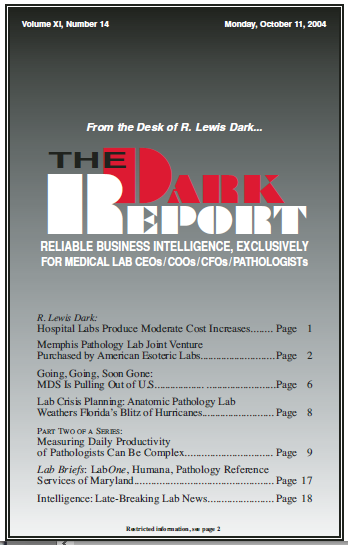CEO SUMMARY: Even as the best of its lab testing joint ventures with hospitals and health systems prove profitable, MDS Diagnostic Services is taking active steps to resolve its participation as a partner. In a candid interview, its President and CEO acknowledged the best attributes of such joint ventures and identified specific business dynamics which …
Going, Going, Soon Gone: MDS Pulling Out of U.S. Read More »
To access this post, you must purchase The Dark Report.


